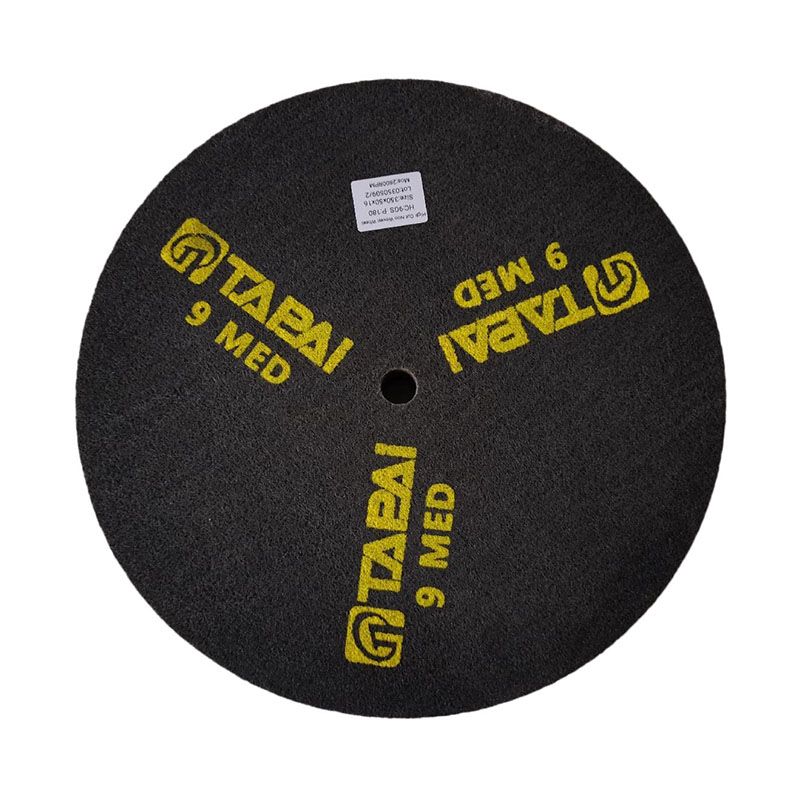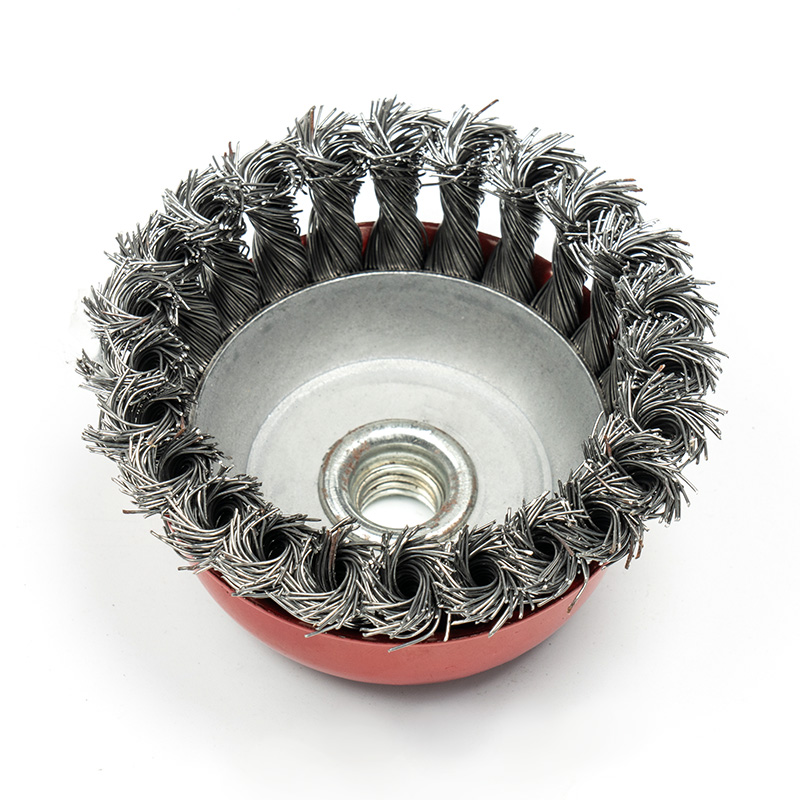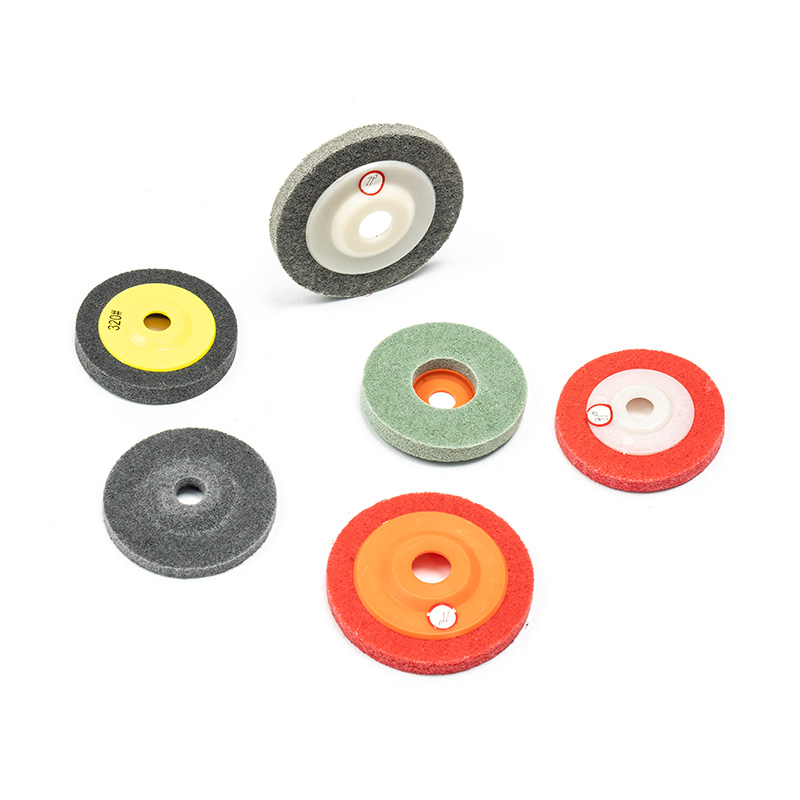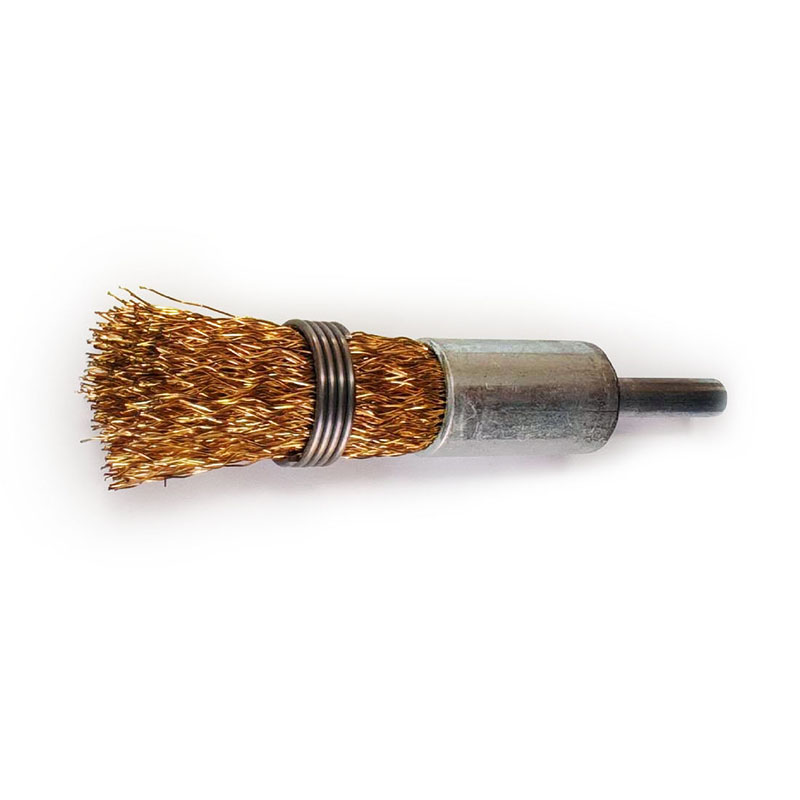Cat:Wire Wheel Brush
Featuring a bowl-shaped configuration and twisted wire bristles, this brush is suitable for industrial and automotive ap...
See DetailsIntroduction to Wear Resistance of Non-Woven Fiber Wheels
Non-woven fiber Wheels are widely used abrasive tools in metal finishing, surface conditioning, and polishing processes. Their unique construction—comprised of synthetic fibers bonded together with abrasive grains—provides a balance between cutting efficiency and surface finish quality. Understanding the wear resistance of these wheels is essential for selecting the right product for specific industrial applications where longevity and consistent performance are critical.

Material Composition Influencing Durability
The wear resistance of a Non-Woven Fiber Wheel largely depends on the type and quality of fibers, abrasive grains, and bonding agents used during manufacturing. Synthetic fibers such as nylon offer flexibility and strength, allowing the wheel to conform to workpiece contours while resisting tearing. The abrasive particles, often aluminum oxide or silicon carbide, determine the cutting aggressiveness and longevity. A robust bonding resin ensures abrasive grains remain fixed during operation, enhancing the wheel’s service life under continuous use.
Structural Design and Its Effect on Wear Rate
Non-woven fiber Wheels are designed with a porous and open structure that enables self-cleaning and heat dissipation. This architecture reduces clogging and overheating, common causes of premature wear in abrasive tools. The open web of fibers allows worn abrasive particles to dislodge naturally, exposing fresh grains and maintaining cutting efficiency over time. Consequently, these wheels exhibit a relatively slow wear rate compared to traditional rigid abrasive wheels, making them suitable for extended finishing tasks.
Impact of Operating Conditions on Wear Performance
Several external factors influence the wear resistance of Non-Woven Fiber Wheels during usage. The applied pressure, rotational speed, and workpiece material hardness all affect the wheel’s lifespan. Excessive pressure or high speed can accelerate wear by generating heat and mechanical stress, potentially causing fiber breakdown or abrasive grain loss. Conversely, moderate operating parameters help preserve the wheel’s structure and abrasive surface, extending its effective use. Additionally, abrasive wheels used on harder materials tend to wear faster due to increased frictional forces.
Comparative Advantage Over Traditional Abrasives
Compared to conventional bonded abrasive wheels, Non-Woven Fiber Wheels offer improved wear resistance in many finishing applications. Their flexible structure adapts better to irregular surfaces, reducing the risk of glazing and loading. Unlike rigid wheels that may fracture or degrade rapidly under impact or vibration, fiber wheels maintain structural integrity, ensuring consistent performance. These advantages translate to fewer wheel changes, reduced downtime, and lower operating costs in production environments.
Maintenance and Storage for Prolonged Lifespan
Proper handling and storage also contribute to maintaining the wear resistance of Non-Woven Fiber Wheels. Keeping the wheels dry and protected from contaminants prevents fiber weakening and resin degradation. Avoiding exposure to excessive heat or chemicals preserves the bonding agents, which directly influence abrasive retention. Routine inspection for physical damage before use helps identify worn or compromised wheels, preventing unexpected failures and ensuring safety.
Conclusion: Durable and Reliable Abrasive Solution
In summary, Non-Woven Fiber Wheels exhibit strong wear resistance thanks to their specialized material composition, open structural design, and adaptability to various operating conditions. Their ability to maintain cutting efficiency while resisting premature degradation makes them a preferred choice for surface finishing tasks demanding durability and consistent quality. Selecting wheels matched to the application parameters and following proper maintenance practices further maximizes their lifespan and performance.

Featuring a bowl-shaped configuration and twisted wire bristles, this brush is suitable for industrial and automotive ap...
See Details
The Full-Automatic Wire Twist Pen Brush Machine represents a significant leap in efficiency and precision for manufactur...
See Details
Non-woven fiber wheels are versatile industrial tools designed for surface finishing, especially for polishing, cleaning...
See Details
A polishing wire brush is an essential tool used in a variety of industries for achieving a smooth, polished surface on ...
See Details+86-18867586928
Contact Us